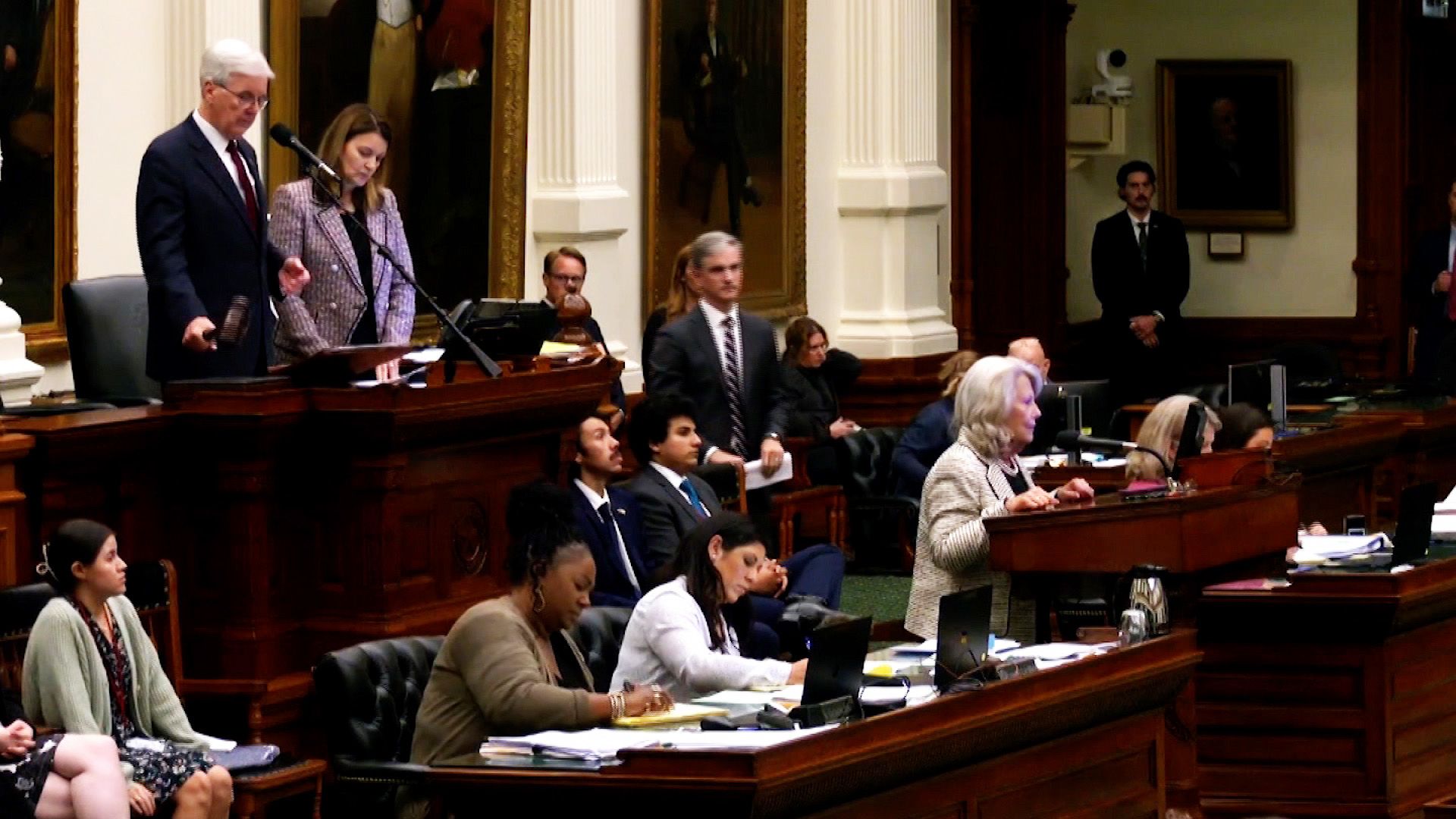
Texas Republicans approve new congressional maps as partisan redistricting race escalates
Entities mentioned:
- Texas Republicans: Power, Control, Competitive spirit
- Donald Trump: Power, Influence, Legacy
- Greg Abbott: Power, Loyalty, Control
- Dan Patrick: Loyalty, Power, Influence
- California Democrats: Competitive spirit, Power, Justice
- Gavin Newsom: Power, Competitive spirit, Justice
- Kathy Hochul: Competitive spirit, Power, Influence
- Todd Hunter: Power, Loyalty, Competitive spirit
- Catherine Blakespear: Justice, Competitive spirit, Moral outrage
- Phil King: Power, Loyalty, Competitive spirit
- Texas Democrats: Justice, Moral outrage, Self-preservation
- Dustin Burrows: Control, Power, Determination
- Nicole Collier: Moral outrage, Self-respect, Determination
- Gene Wu: Justice, Determination, Moral outrage
- Carol Alvarado: Justice, Determination, Moral outrage
- Lloyd Doggett: Self-preservation, Professional pride, Duty
- Greg Casar: Self-preservation, Ambition, Professional pride
- Venton Jones: Justice, Moral outrage, Self-respect
- Charlie Geren: Duty, Control, Power
- Robert Rivas: Power, Competitive spirit, Influence
Article Assessment:
Credibility Score: 75/100
Bias Rating: 55/100 (Center)
Sentiment Score: 35/100
Authoritarianism Risk: 65/100 (Authoritarian Tendencies)
Bias Analysis:
The article presents perspectives from both Republican and Democratic actors, providing a relatively balanced view of the redistricting efforts. However, there's slightly more focus on Democratic opposition and legal challenges, which may suggest a slight center-left lean.
Key metric: Electoral Competitiveness
As a social scientist, I analyze that this article highlights a significant escalation in partisan redistricting efforts, with potential far-reaching consequences for electoral competitiveness in the United States. The actions taken by both Texas Republicans and California Democrats represent a departure from normal redistricting processes, occurring mid-decade rather than following the census. This trend towards more frequent and aggressive redistricting could lead to increased polarization, reduced electoral competitiveness, and a weakening of democratic norms. The use of redistricting as a tool for partisan advantage may result in less representative government and diminished voter faith in the electoral system. The involvement of state legislatures in overriding independent commissions (as in California) also raises concerns about the erosion of checks and balances designed to ensure fair representation.

California Democrats release map ahead of redistricting in response to Texas
Entities mentioned:
- California Democrats: Power, Justice, Revenge
- Texas Republicans: Power, Control, Loyalty
- Donald Trump: Power, Influence, Control
- Gov. Gavin Newsom: Power, Ambition, Justice
- Robert Rivas: Righteousness, Justice, Influence
- Rep. Ken Calvert: Self-preservation, Loyalty, Indignation
Article Assessment:
Credibility Score: 75/100
Bias Rating: 55/100 (Center)
Sentiment Score: 35/100
Authoritarianism Risk: 45/100 (Mixed/Neutral)
Bias Analysis:
The article presents both Democratic and Republican perspectives, though it gives more space to Democratic viewpoints. While it includes quotes from both sides, the framing slightly favors the Democratic narrative of 'fighting back' against Republican actions.
Key metric: Electoral Competitiveness
As a social scientist, I analyze that this article highlights the intensifying partisan struggle over redistricting, with potential significant impacts on Electoral Competitiveness. The proposed California redistricting plan, portrayed as a direct response to similar actions in Texas, could dramatically shift the balance of power in the U.S. House of Representatives. This tit-for-tat approach to redistricting between two major states underscores the growing politicization of the electoral map-drawing process. The potential flip of up to five seats from Republican to Democratic control in California could have far-reaching consequences for national politics and policy-making. This development also reflects the increasing use of state-level political power to influence federal representation, potentially undermining the principle of fair representation and exacerbating political polarization. The involvement of voters through a referendum adds a layer of democratic legitimacy to the process in California, but also highlights the complex interplay between direct democracy and representative governance in shaping electoral landscapes.